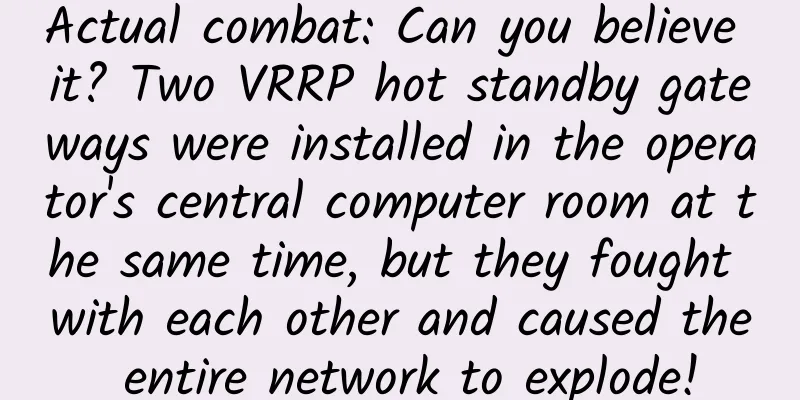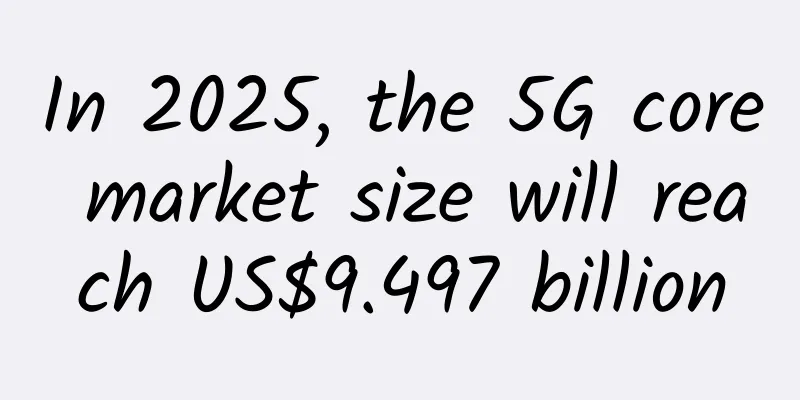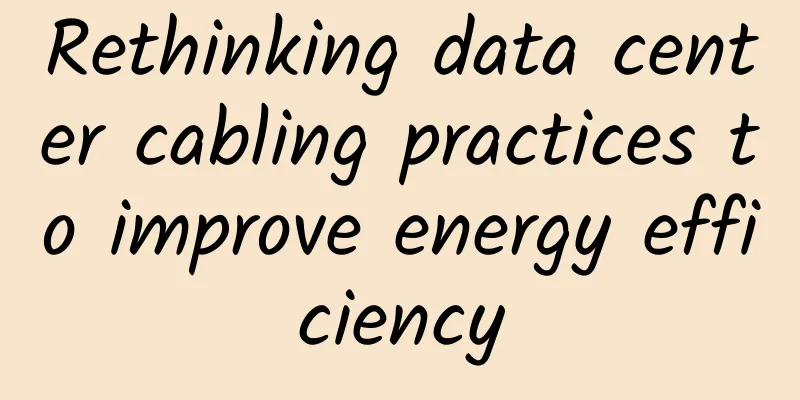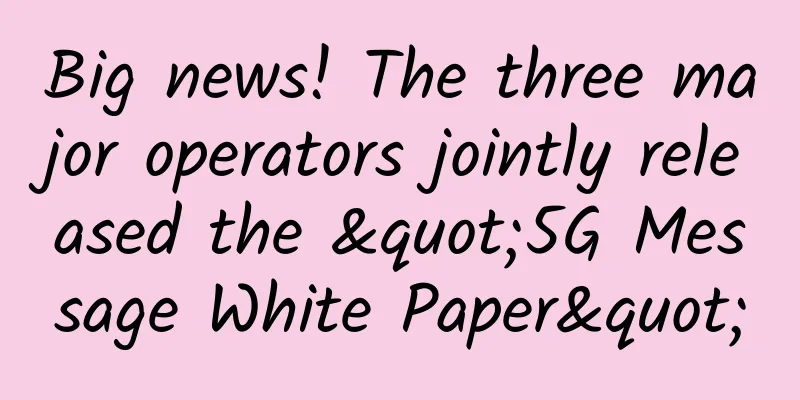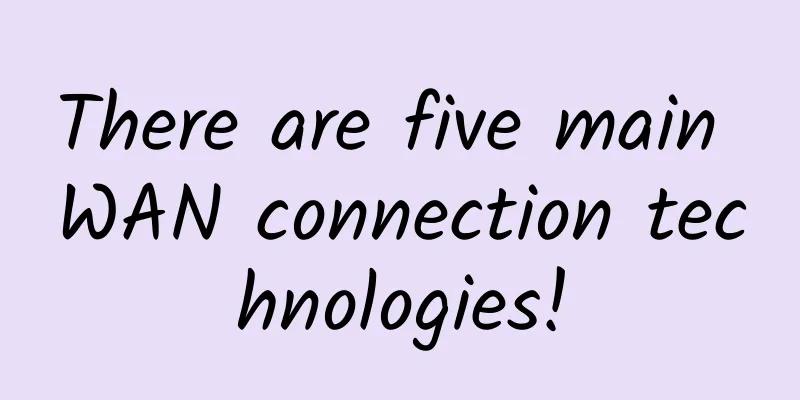+See the future with intelligence! In 2019, Huawei Cloud will let you see a different intelligent cloud
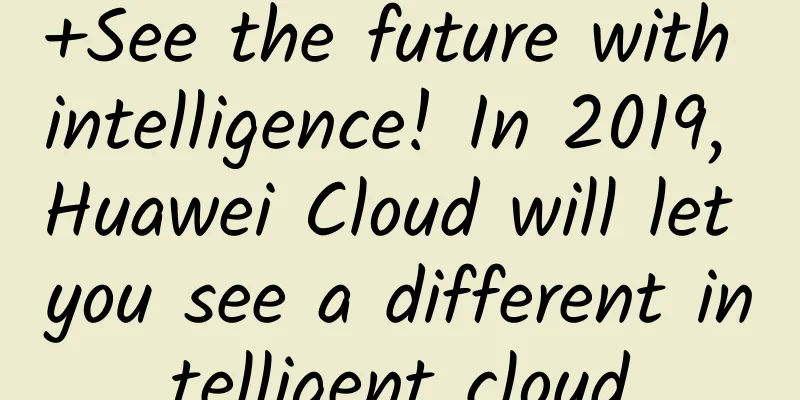
|
[51CTO.com original article] If we were to select the most popular word in the IT industry in 2018, then "AI (artificial intelligence)" would definitely be worthy of the title. Last week, Huawei Cloud continued the heat of AI into the beginning of 2019. The "Huawei Cloud Inclusive AI Annual Summit" held in Beijing 798 Factory not only had a futuristic space design, but also attracted many partners and customers to attend.
During the event, 51CTO reporters interviewed three senior executives of Huawei. Their predictions and thoughts on the future of artificial intelligence, as well as Huawei Cloud's focus in the new year, actually reflect the mainstream development of China's cloud field to a large extent.
Huawei Cloud's new slogan: +Intelligence for the future Zheng Yelai first officially released the new brand slogan of Huawei Cloud: "+ Intelligence See the Future". He emphasized that the "+ Intelligence" in the new slogan is not "Intelligence +". The difference between the two is that Huawei Cloud insists on its mission of enabling all walks of life, hoping to help customers change their production relations and even change their production structure through intelligent technology, so as to maximize the release and improvement of productivity.
So what is the relationship between this new slogan and the "inclusive AI" that Huawei Cloud has been promoting? Zheng Yelai explained that the focus of the previous promotion of inclusive AI was "affordable, easy to use, and safe to use", which was promoted from the technical dimension, highlighting the use effect of AI technology and the low technical threshold. However, "+ Intelligence Sees the Future" emphasizes the combination of technology and industry. "If technology is not combined with the industry, it is worthless. + Intelligence combines mathematicians' algorithms with industry applications to usher in a better future." He also pointed out that general technologies such as +intelligence will change the future of the industry, and the starting point of Huawei Cloud is very simple, either to change users' production efficiency and improve product quality, or to help users save costs. Both are generally pursued by users, so Huawei Cloud and users often hit it off. Huawei Cloud's circle of friends continues to grow Today, Huawei Cloud has delivered a good result in 2018, relying on Huawei's deep technical accumulation in the field of AI. Hong Fangming, President of Huawei Cloud China, said: "By the end of 2018, Huawei Cloud has launched more than 160 cloud services and more than 140 solutions. Basically, one or two new cloud services are launched every week; the number of new applications in the cloud market has reached 1,500, which is more than three times the number in 2017."
According to Hong Fangming, in 2018, Huawei had 3,500 ecological partners in China, and more than 6,000 partners traded with Huawei Cloud. The overall development was in line with expectations. Not long ago, Huawei Cloud also just released the 3.0 version of the Ecological Partner Policy. Huawei Cloud has provided a clear industry plan on how to help partners build a better cloud in the entire ecosystem and how to use artificial intelligence to empower the industry. The plan content ranges from policy support to technology research to industrial application. Huawei Cloud provides partners with comprehensive help. How can artificial intelligence truly play its value in the industry? Jia Yongli, Vice President of Huawei Cloud BU, said that Huawei focused on eight industries and more than 200 projects in 2018. In the execution of the projects, Huawei's biggest gain was a better understanding of how to make artificial intelligence truly valuable in the industry. "The most important thing for the implementation of artificial intelligence is to be scenario-based. When we clearly find the boundaries and scope of the scenarios, we can use data and algorithms to drive the business to generate greater value."
He revealed that Huawei's experience is to divide different industries into three categories: the first category is massive repetitive scenarios, in which Huawei AI can help customers improve efficiency; the second category is expert experience scenarios, where Huawei AI technology can be used for professional inheritance and assistance, and is more commonly used in medical scenarios; the third category is multi-domain collaborative scenarios, which are more common in industrial scenarios. For example, in the process of synthetic fiber production, artificial intelligence can achieve fine-grained regulation and improve production efficiency by 20%. In 2019, Jia Yongli said Huawei will continue to implement the two sets of experiences explored in 2018. One is centered around enterprises, helping them select scenarios and implement their businesses; the other is centered around developers, allowing them to enjoy the benefits brought by artificial intelligence and making the entire artificial intelligence a service. HUAWEI CLOUD HCS, the hybrid cloud solution that best understands the needs of government and enterprise customers Although the slogan has changed, Huawei Cloud's positioning as a black soil has not changed, and Huawei AI's business model is still to provide huge computing power technology for data. Zheng Yelai clearly pointed out that "our pursuit of artificial intelligence is two alls: the first is full scenario, to achieve 'one-stop' deployment, and the second is full stack, providing full stack capabilities from chips to APIs." In the era of Cloud 2.0, when government and enterprise users migrate to the cloud, they rarely choose to migrate all their businesses to the cloud at first. Instead, they are more interested in enjoying the services, advanced concepts, and unified operation and maintenance of the public cloud while using the management of the private cloud, including the storage of local data resources. In response to such demands, Huawei officially released the HUAWEI CLOUD Stack hybrid cloud solution (HCS) at the event. The reporter learned that HCS builds a zero-delay, zero-change cloud service experience for government and enterprise customers, with the industry-leading "five unifications": unified architecture, unified operation and maintenance, unified upgrade, unified API, and unified ecology, allowing customers to focus on their core business, and the underlying operation and maintenance can be handed over to Huawei Cloud. In terms of technology evolution, capacity expansion, and API ecology, enterprises can quickly set up or migrate between private clouds and Huawei Cloud. It is reported that HCS has helped customers such as Germany's Duisburg government, Chile's Falabella retail, and Shenzhen traffic police to realize digital transformation practices. These achievements were certainly not achieved overnight. Zheng Yelai revealed that Huawei Cloud visited more than 200 companies last year. Through communication with users, Huawei Cloud grasped two core issues and made clear statements: First, the data belongs to the users, and Huawei will not take it; second, the intellectual property rights generated by the combination of data are not Huawei's in principle, and Huawei does not want them. With these two promises, many domestic companies, such as medical testing companies, did not hesitate to bring out all their data and experts to cooperate with Huawei. Huawei also did as promised, "Although Huawei has the most complete data, it will never cross all the data." In an interview, Zheng Yelai said that in 2019, Huawei will also launch services in the Middle East, Central Asia, Northeast Europe, Latin America, South Pacific and other regions. Basically, Huawei cloud services will be available in most parts of the world. [51CTO original article, please indicate the original author and source as 51CTO.com when reprinting on partner sites] |
<<: What are public IP and private IP? What is NAT conversion?
>>: This is the most comprehensive summary of the IGMP protocol, bar none!
Recommend
What is a mesh Wi-Fi router? What makes it so cool?
No matter how big or small your house or apartmen...
IT teams abandon DIY SD-WAN for managed hybrid models
When software-defined WAN first emerged, demand f...
H3C's development resilience: Building a solid digital foundation with pragmatic technological innovation
In the development of the digital economy, innova...
ACI's "hardcore security" is more eye-catching
[51CTO.com original article] According to market ...
Maxthon Hosting: 56 yuan/month Hong Kong CN2-2GB/40G SSD/300GB/15M Bandwidth
Aoyo Zhuji is one of the foreign hosting services...
The main tasks of 5G in the 13th Five-Year Plan are determined
[[181279]] Recently, the Ministry of Science and ...
SD-WAN first or security first?
[[419685]] The right secure access service edge (...
How to redirect HTTP to HTTPS in Nginx
Nginx, pronounced "Engine x", is a free...
Why is CDN designed this way?
Over the past few decades, computer networks have...
Eight excellent open source intranet penetration tools
Intranet penetration (NAT penetration) is a techn...
5 things you should know about monitoring tools
Does your IT team have too much data and not enou...
Linux common command find record
The tribe recorded some usage of the find command...
We haven’t experienced 5G yet, but 6G is coming?
The latest 6G speed created by Chinese scientists...
HostYun: Los Angeles CN2 GIA line AMD series restock, native IP monthly payment starts from 22 yuan
HostYun is a domestic hosting company (formerly k...



